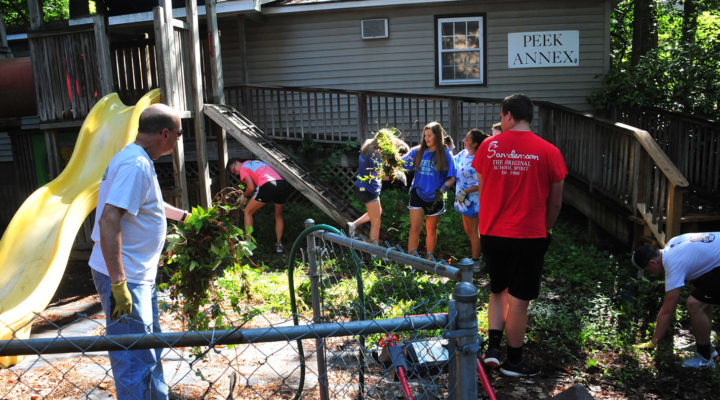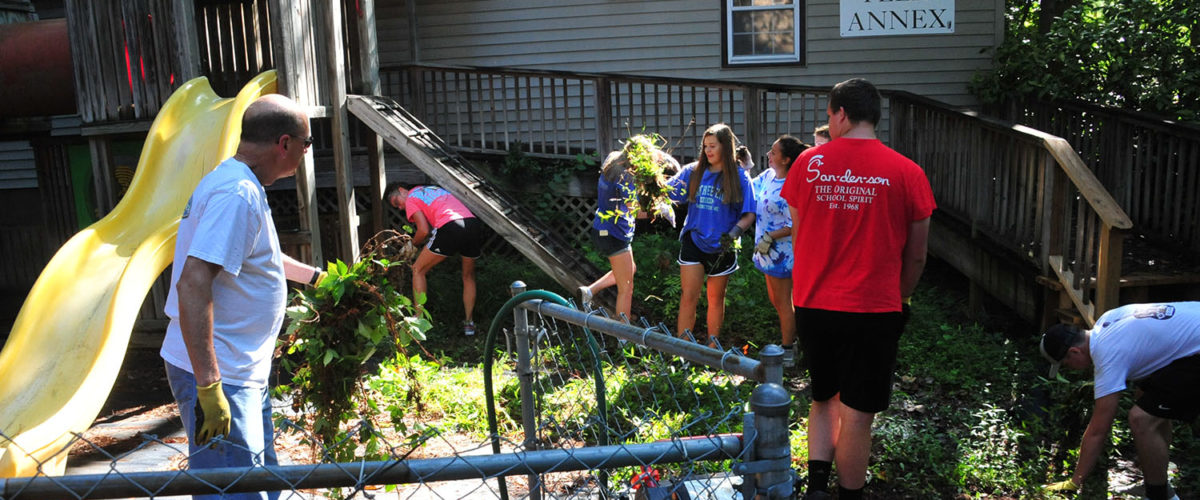Refugees are increasingly unwelcome in many places around the world. But anti-refugee hostility wasn’t the challenge a North Carolina Baptist congregation faced in opening a refugee house on its Raleigh property this year.
“There was a lot of skepticism because we didn’t feel like we could take this on,” says Charles Allard, part-time pastor at Crabtree Valley Baptist Church. “We are a small church. We are basically a senior church.”
Yet, Crabtree Valley Baptist Church was able to go from the initial idea stage and renovation to hosting its refugee family in less than 12 months.
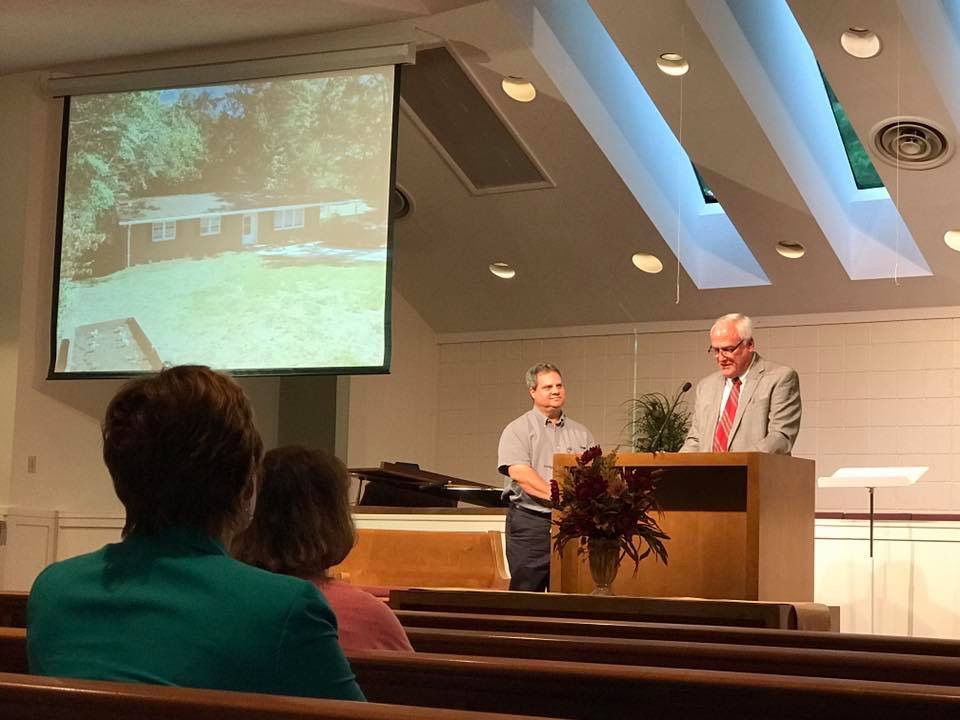
CBF field personnel Marc Wyatt, left, and Charles Allard, pastor at Crabtree Valley Baptist Church, during a Sunday celebration of the opening of Welcome House Raleigh. (Photo/Courtesy of Marc Wyatt)
On Sunday, the Cooperative Baptist Fellowship congregation hosted about 130 local stakeholders — including representatives from more than a dozen other churches and organizations — to celebrate the launch of Welcome House Raleigh.
Crabtree’s facility joins two others in the state: Hope House Durham, run by Hope Valley Baptist Church, and Welcome House Wilmington, which is operated by Winter Park Baptist Church.
“Each is a collaborative of local refugee agencies, churches and community stakeholders invested in social capital and hospitality efforts toward arriving sponsored refugee families,” CBF field personnel Marc and Kim Wyatt said in an email about Crabtree Valley’s new project.
The Wyatts oversaw a growing refugee care ministry in Canada before arriving in North Carolina to conduct a similar ministry.
“We see this as a movement not unlike what we saw in Canada,” Marc Wyatt told Baptist News Global.
Discussions are underway among nearly 10 churches to open a refugee welcome house in Winston-Salem, he said.
“In over 15 years [in Canada] we saw 12 houses started and we are seeing the same kind of momentum and movement among the churches here in North Carolina.”
Doors keep opening
To be included in that discussion seemed unlikely, even impossible, for the people of Crabtree Valley Baptist Church when the welcome house idea first surfaced in February. It was during a business meeting discussion about the future of the congregation’s abandoned and deteriorating Youth House.
“There was a lot of skepticism,” Allard said.
The house had a leaking roof, portions of the ceiling had caved in and paint was peeling. Youth had long since abandoned the structure, Allard said.
How, some asked, was a congregation of about 50 people going to muster the labor and money needed to transform the structure into safe, welcoming transitional housing for newly arrived refugees?
“When we looked at ourselves, it was impossible,” Allard said. “Our [members are] basically 75 years old and up. The physical energy is not there to do this work and we’re barely meeting our budget right now.”
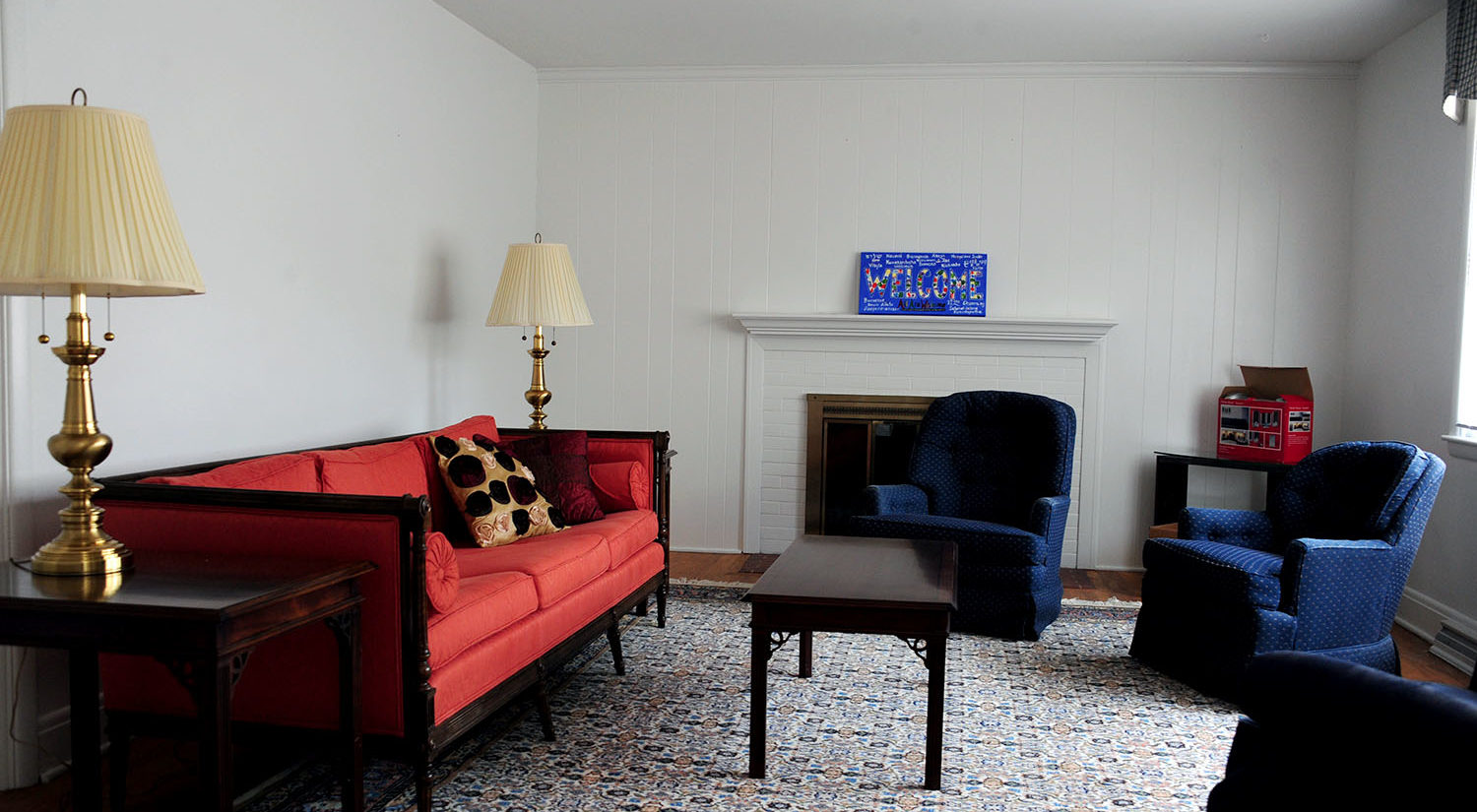
An interior view of Welcome House in Raleigh, N.C. (Photo/Courtesy of Crabtree Valley Baptist Church)
But the answers started to come once it was decided to form a committee to research the welcome house option, he said.
Another church called almost immediately to offer to clean up the yard. Marc Wyatt communicated that CBF would provide $2,000 for the project. Soon after that, the Raleigh Baptist Association said it would provide $2,500, Allard said.
When the contractor hired to rehab the house learned of its future purpose, he reduced the price from $10,000 to $3,500.
“God was already out in front of us on this and preparing us and showing us this could be done,” Allard said.
Crabtree Valley Baptist growing network of help as confirmation they were headed in the right direction.
Others saw it that way, too.
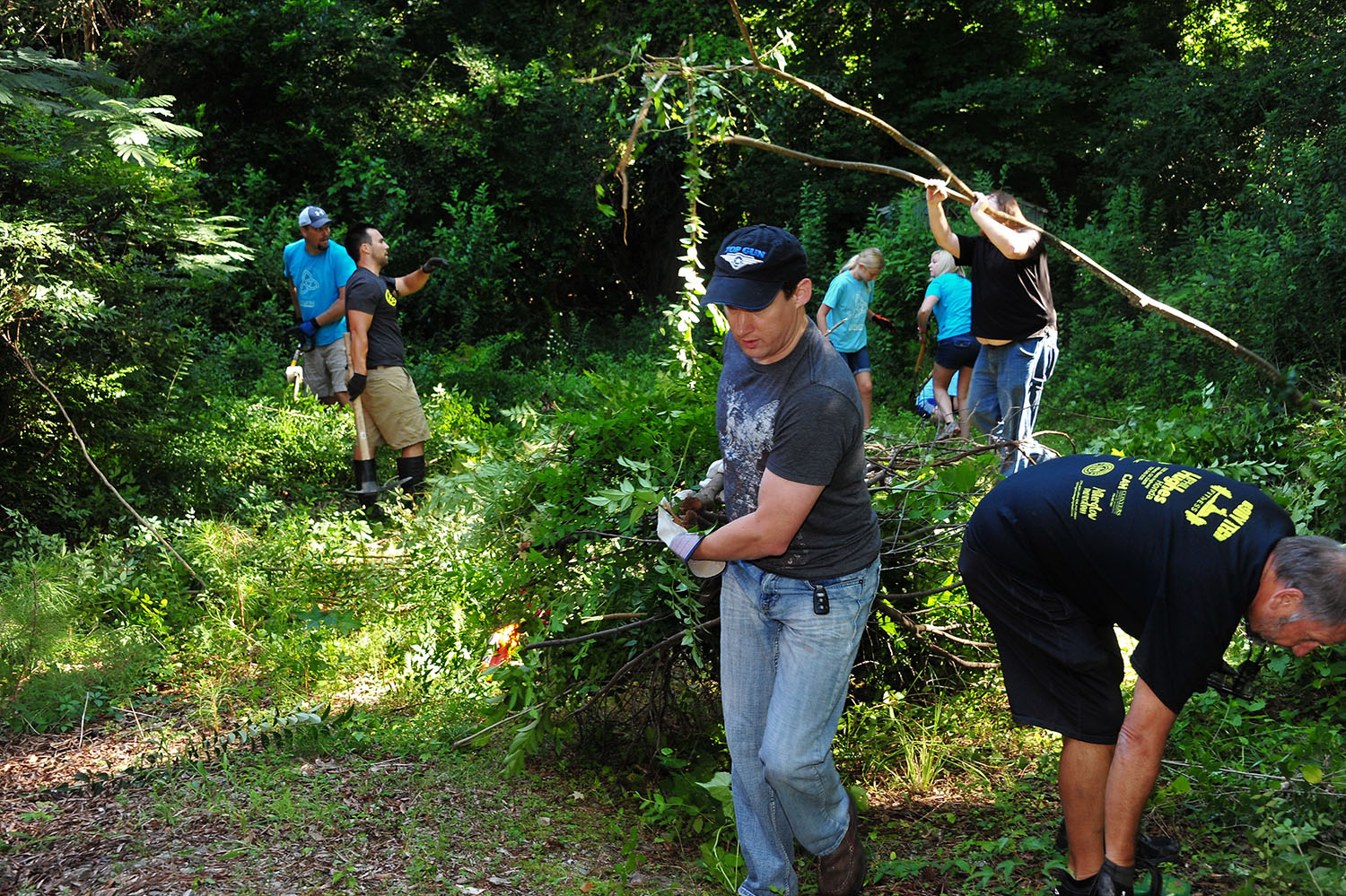
A team of volunteers clears the grounds around what will become Welcome House Raleigh. Located in the former Youth House at Crabtree Valley Baptist Church, the facility welcomes refugees for short-term stays. (Photo/Courtesy of Crabtree Valley Baptist Church)
The Raleigh Baptist Association has designated funds for projects where multiple churches from a wide area are involved, Executive Director Roger Nix said.
Crabtree Valley Baptist’s refugee ministry, and the cooperation it has inspired, “is a model of the Kingdom,” Nix said.
It was a green light for the church.
“We learned we didn’t have to have all the manpower and energy and money,” Allard said. In fact, the church’s main contribution is the structure itself, plus an agreement to pay utilities and provide some of the volunteers to interact with refugees during their short stays in the house.
The first refugee family to stay there recently was from Iraq. They, like all other legally resettled refugees, are vetted by the federal government. The Wyatts will interact with agencies contracted to find short- and long-term housing for the new arrivals.
“The church itself will not have very much contact with the government side of it,” Allard said.
However, they will have contact with people from around the world.
“The welcome house gives us the opportunity to show love and kindness and maybe change whatever ideas they have about Christians,” Allard said. “It’s a tremendous Christian witness.”

